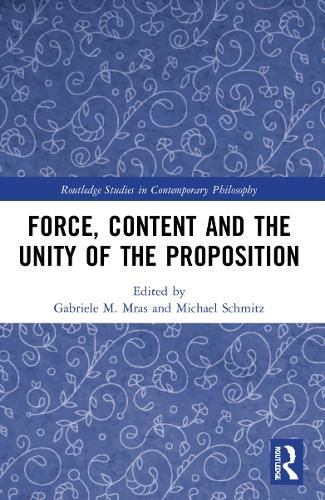Readings Newsletter
Become a Readings Member to make your shopping experience even easier.
Sign in or sign up for free!
You’re not far away from qualifying for FREE standard shipping within Australia
You’ve qualified for FREE standard shipping within Australia
The cart is loading…






This volume advances discussion between critics and defenders of the force-content distinction and opens up new ways of thinking about force and speech acts in relation to the unity problem.
The force-content dichotomy has shaped the philosophy of language and mind since the time of Frege and Russell. Isn't it obvious that, for example, the clauses of a conditional are not asserted and must therefore be propositions and propositions the forceless contents of forceful acts? But, others have recently asked in response, how can a proposition be a truth value bearer if it is not unified through the forceful act of a subject that takes a position regarding how things are? Can we not instead think of propositions as being inherently forceful, but of force as being cancelled in certain contexts? And what do assertoric, but also directive and interrogative force indicators mean?
Force, Content and the Unity of the Proposition will be of interest to researchers working in philosophy of language, philosophical logic, philosophy of mind and linguistics.
$9.00 standard shipping within Australia
FREE standard shipping within Australia for orders over $100.00
Express & International shipping calculated at checkout
This volume advances discussion between critics and defenders of the force-content distinction and opens up new ways of thinking about force and speech acts in relation to the unity problem.
The force-content dichotomy has shaped the philosophy of language and mind since the time of Frege and Russell. Isn't it obvious that, for example, the clauses of a conditional are not asserted and must therefore be propositions and propositions the forceless contents of forceful acts? But, others have recently asked in response, how can a proposition be a truth value bearer if it is not unified through the forceful act of a subject that takes a position regarding how things are? Can we not instead think of propositions as being inherently forceful, but of force as being cancelled in certain contexts? And what do assertoric, but also directive and interrogative force indicators mean?
Force, Content and the Unity of the Proposition will be of interest to researchers working in philosophy of language, philosophical logic, philosophy of mind and linguistics.